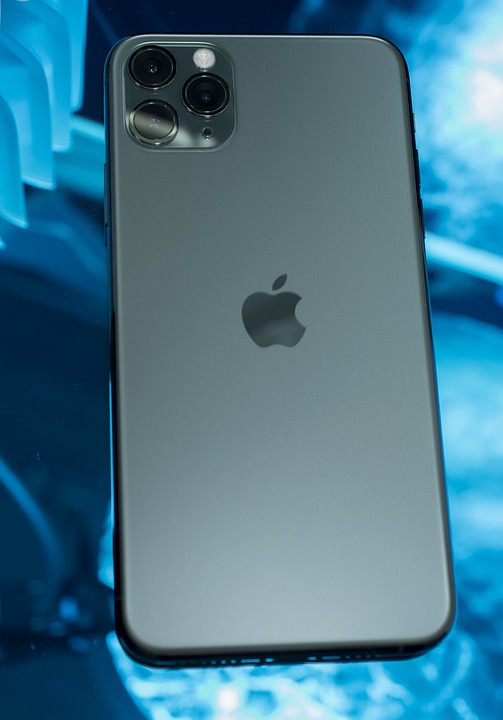iPhone 11 vs. iPhone XR Buyer's Guide
Apple continues to offer pre-generation iPhone 11 and iPhone XR models alongside the latest iPhone 12 and iPhone 12 Pro models. The two devices have quite a few similarities, but with respect to cameras, battery life, and more the iPhone 11 takes a step forward.
Design Very Similar
The iPhone 11 has a very similar glass-and-aluminum design to the iPhone XR, with its dual-lens rear camera system housed in a wide, square camera bump as one big visual difference. The Apple logo is centred on the rear of the iPhone 11 and the brand name "iPhone" is no longer seen.
Otherwise the monitor, bezels, notch, antenna bands, volume and side keys, mute switch, speaker grilles, and microphones are pretty much the same. The iPhone 11 also sticks with the connector for the Lightning.
The iPhone 11 comes in six colors, including green, purple, white, black, yellow, and (PRODUCT)RED.
Both devices weigh in at just under half a pound and have identical dimensions.Displays Same
The iPhone 11 has the same 6.1-inch LCD as the iPhone XR, with a resolution of 1792-828 pixels for 326 pixels per inch, 625 nits of maximum brightness, and large colour gamut support for True Tone and P3. Compared to the OLED screens used with the 'iPhone 12' lineup, the LCD screen holds costs down.
Like the iPhone XR, the iPhone 11 relies on Haptic Touch software for contextual menus and shortcuts. There is no pressure-sensitive 3D Touch layer integrated into the touchscreen of the iPhone 11, unlike older iPhones.
Performance Differences
The iPhone 11 is powered by the A13 Bionic chip from Apple, which is the second fastest CPU ever in any smartphone, behind only the newer A14 Bionic chip from Apple in the iPhone 12 models./article-new/2019/09/iphone-11-display-1-800x463.jpg?lossy)
Battery Life
Like the iPhone XR, the iPhone 11 supports Qi-based wireless charging, as well as fast charging with an 18W or higher USB-C adapter for up to a 50 percent charge in 30 minutes.
The Biggest Discrepancy Cameras
The rear camera system is easily the biggest upgrade for the iPhone 11 over the iPhone XR. Unlike the XR, with a 120 ° field of view, the wide-angle x/1.8 lens is supplemented by an ultra-wide-angle x/2.4 lens. The ultra-wide-angle lens, according to Apple, enables users to "zoom out to "0.5x" and film four times more scenes.
The wide-angle lens of the iPhone 11 also has an upgraded sensor that allows Night Mode to markedly enhance brighter and less noisy low-light images. On Google's newer Pixel smartphones, this feature is identical to Night Sight.
The iPhone 11's third-generation Neural Engine enables next-generation Smart HDR for more natural-looking photos. The Neural Engine also enables Deep Fusion, which uses advanced machine learning for pixel-by-pixel processing of photos, including texture, details, and noise.
On the iPhone 11, Portrait Mode works for not only human faces, but also objects and pets.
On the iPhone 11, including Normal, Studio, Contour, Stage, Stage Mono and High-Key Mono, there are also six Portrait Lighting effects available. On the iPhone XR, this is up from 3: Real, Studio, and Contour.
iphone also includes front-facing video recording at 120 FPS slo-mo.
Connectivity Compared
Theoretically, the iPhone 11 has higher download speeds for both 802.11ax Wi-Fi and Gigabit-class LTE than the iPhone XR, but real-world performance is usually constrained by many factors such as location and network congestion.
The iPhone 11 also includes an U1 chip developed by Apple that allows ultra-wideband support for enhanced spatial awareness. The chip helps the iPhone 11 to precisely locate other Apple devices equipped with U1, such as other iPhone 11 models, and Apple's rumoured Tile-like item tracking AirTags, allegedly.
Storage and Pricing Differences
iPhone 11 is available in 64GB, 128GB, and 256GB storage capacities for $599, $649, and $749 respectively.
iPhone XR is available in 64GB and 128GB storage capacities for $499 and $549 respectively.
Compared Tech Specs
Below you'll find tech specs for iPhone 11 and iPhone XR, with each difference bolded.
iPhone 11
- 6.1-inch LCD display
- 1792×828 resolution and 326 PPI
- True Tone display
- Dual 12-megapixel rear cameras (wide and ultra-wide lenses)
- Single 12-megapixel front camera
- Depth Monitor Portrait Mode: people, pets and artefacts
- Six Portrait Lighting effects
- Next-gen Smart HDR
- A13 Bionic chip with third-gen Neural Engine
- Face ID
- Haptic Touch
- Lightning connector
- Fast charging capable: up to 50% charge in 30 minutes
- Qi-based wireless charging
- IP68-rated water resistance of up to 30 minutes to a depth of 2 metres
- 64/128/256GB
- Dual SIM (Nano-SIM and eSIM)
- Gigabit-class LTE
- VoLTE
- 802.11ax Wi‑Fi with MIMO
- Bluetooth 5.0
Plus…
- Night Mode photos
- Front-facing slo-mo video recording at 120 FPS
- QuickTake Recording Video Shortcut
- Dolby Atmos sound
- U1 chip for spatial awareness
iPhone XR
- 6.1-inch LCD display
- 1792×828 resolution and 326 PPI
- True Tone display
- Single 12-megapixel rear camera (wide lens)
- Single 7-megapixel front camera
- Portrait Mode with Depth Control: humans only
- Three Portrait Lighting effects
- Smart HDR
- A12 Bionic chip with second-gen Neural Engine
- Face ID
- Haptic Touch
- Lightning connector
- Fast charging capable: up to 50% charge in 30 minutes
- Qi-based wireless charging
- IP67-rated water resistance of up to 30 minutes to a depth of 1 metre
- 64/128GB (256GB discontinued)
- Dual SIM (Nano-SIM and eSIM)
- LTE Advanced
- VoLTE
- 802.11ac Wi‑Fi with MIMO
- Bluetooth 5.0
Verdict for iPhone 11 vs iPhone XR
The iPhone 11 is a very iterative upgrade to the iPhone XR, but users who take many images may find the advancements of the camera worth spending an additional $100 on. The iPhone 11 is already one year newer than the iPhone XR, so it can receive iOS updates for an additional year.



Comments
Post a Comment